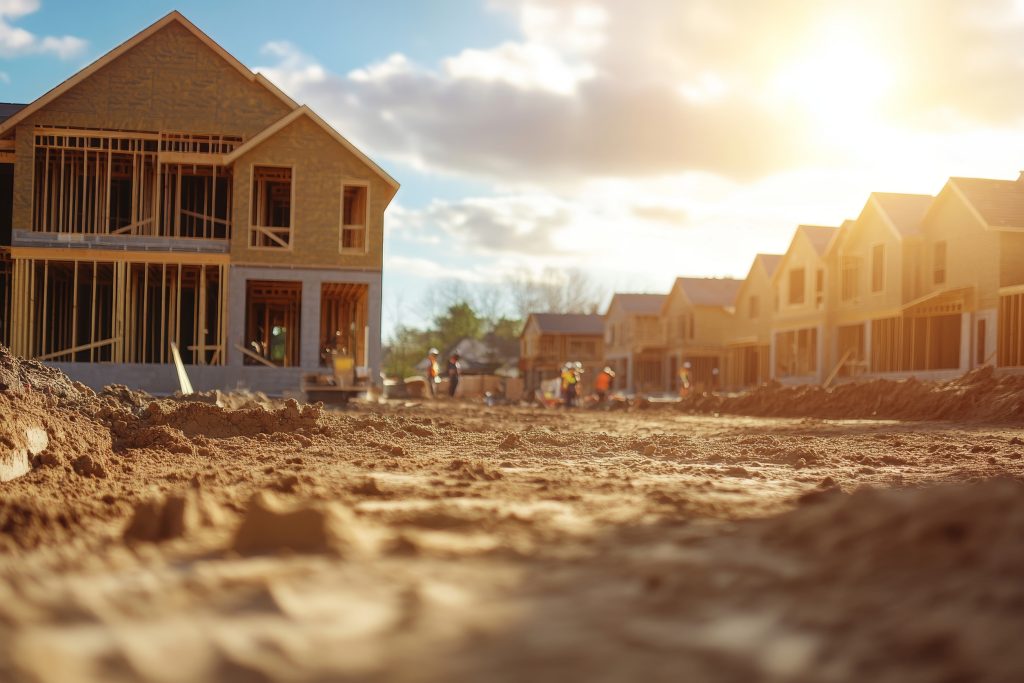خلاصہ: New York becomes first state to mandate all-electric new buildings

BY THE OPTIMIST DAILY EDITORIAL TEAM
New York has officially become the first state in the U.S. to require most new buildings to be constructed without fossil fuels. On July 25, the State Fire Prevention and Building Code Council finalized regulations that mandate all-electric systems for most new construction, marking a major milestone in the state’s climate and public health agenda.
“I’m excited that we are finally tackling, statewide, our largest source of fossil-fuel emissions,” said Assemblymember Emily Gallagher, who sponsored the 2023 All-Electric Buildings Act. Buildings currently account for 31 percent of New York’s greenhouse gas emissions.
What the new rules require
Starting December 31, 2025, new buildings up to seven stories tall or up to 100,000 square feet for commercial and industrial projects, must be built without gas or other fossil-fuel systems. Larger buildings will need to comply starting in 2029.
The code promotes the installation of heat pumps and heat-pump water heaters, which are known for their energy efficiency and long-term cost savings. While the council included exemptions for facilities like laboratories, crematoriums, and certain restaurants, experts say the exceptions won’t weaken the policy’s overall impact.
“I’m relieved,” said Gallagher, noting that fossil-fuel interests had mounted a major opposition campaign. Advocacy group Rewiring America agreed, with policy director Michael Hernandez stating that the rule “sets the stage for scalable electrification.”
Legal hurdles and a win for the state
The policy survived a recent legal challenge. On July 23, a federal court upheld New York’s authority to implement the All-Electric Buildings Act, rejecting arguments from groups including the National Propane Gas Association and the National Association of Home Builders. The plaintiffs had cited the Energy Policy and Conservation Act, the same law used to overturn a similar gas ban in Berkeley, California.
The judge dismissed their arguments, calling the Berkeley ruling “not persuasive” and based on flawed interpretations of key terms like “energy use.”
Still, pushback continues. An industry coalition recently petitioned the U.S. Department of Justice to intervene, but as of now, the code remains on track to take effect.
Economic and environmental payoffs
According to a report commissioned by the New York State Energy Research and Development Authority, the rule may slightly increase upfront construction costs but will ultimately save money. The average household could see $5,000 in savings over 30 years, thanks to a 17 percent drop in energy use and lower utility bills.
In fact, all-electric construction is often less expensive overall. A 2022 analysis by the New Buildings Institute found that building an all-electric single-family home in New York costs about $8,000 less than one with gas infrastructure.
Jay Best, CEO of Green Team Long Island, said the new standard will also boost the adoption of efficient appliances in existing homes. “We’re always telling people about heat pumps… solutions that are going to save them money and make their homes more comfortable,” he said. “But people are apprehensive because it’s something they’re not used to.”
Best believes the policy will normalize electric technology: “The code … sets a bar. This is the minimum that the state says is legal to build. That changes people’s view of the technology.”
Better air, healthier homes
Beyond emissions, the new rules are expected to significantly improve indoor air quality. By phasing out fossil-fuel appliances like gas stoves and furnaces, New York aims to reduce exposure to pollutants such as carbon monoxide, nitrogen oxides, benzene, and particulate matter.
In 2017 alone, fossil-fuel use in buildings contributed to nearly 2,000 premature deaths and caused $21.7 billion in health damages across the state. Gas stoves, in particular, have been linked to elevated asthma rates in children. A 2022 study found that nearly one in five childhood asthma cases in New York could be traced to indoor gas stove pollution.
“Places like the Bronx have the highest rates of childhood asthma in the country,” said New York City Public Advocate Jumaane Williams. “We know this is a life-and-death situation.”
Lonnie Portis of WE ACT for Environmental Justice added that the law marks a turning point. “Numerous studies … show that both air pollution and climate change disproportionately impact low-income communities and communities of color,” he said. “This is a significant step forward for environmental and climate justice.”
A win against powerful opposition
The path to this policy wasn’t easy. “Fossil-fuel companies, plus the gas utilities, plus big real estate” all fought to block the legislation, said Alex Beauchamp of Food & Water Watch.
But grassroots support won out. “When New Yorkers come together … we can win even in the face of opponents with an almost-limitless budget,” Beauchamp said. “That is how we won this bill. It’s also how we are going to continue the fight to get fossil fuels out of all the existing buildings in the state.”
The post New York becomes first state to mandate all-electric new buildings first appeared on The Optimist Daily: Making Solutions the News.
Source: The Optimist Daily



